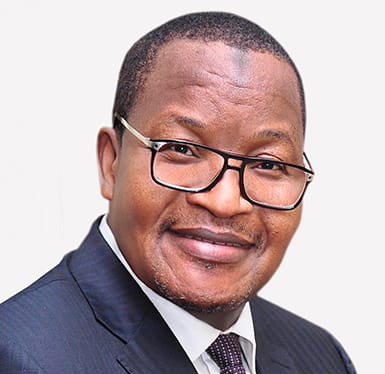The Nigerian Communications Commission, NCC has assured that it will continue to provide an enabling environment for digital infrastructure, development of human capacity to innovate and create digital businesses and services and develop digital skills of Nigerians to be able to use the digital services provided by the innovators and entrepreneurs.
The Executive Vice Chairman/CEO, NCC, Prof. Umar Danbatta who gave this assurance while delivering a keynote address at the Financial and Business Online Publishers, FIBOP 2022 Annual Conference in Lagos on Tuesday observed that the Commission acknowledged the importance of broadband deployment in sustaining the impact of Fintech, for economic growth and social development and had, therefore, articulated all necessary measures to expedite the deployment of infrastructure that would support the actualization of a Nigerian digital economy.
Speaking on the theme of the conference, “Harnessing Fintech for Economic Growth and Social Development”, Danbatta who was represented at the event by the Director, Digital Economy, NCC, Engr. Augustine Nwulune noted that for Nigeria to achieve qualitative and quantitative digital accessibility and availability, there must be a robust and pervasive broadband and telecommunications services in both developed and underdeveloped parts of Nigeria.
He disclosed that in order to support the actualization of Financial Technology in Nigeria as a panacea for economic growth and social development, the Commission had introduced the National Digital Economy Policy and Strategy (NDEPS) 2020-2030 which he said was developed in accordance with the mandate of the Honourable Minister of Communications and Digital Economy to transform every aspect of modern life in Nigeria, for Nigeria to be a global leader in the digital economy as well as facilitating the diversification of the economy and achievement of key national objectives.
He further hinted that the Commission had also put in place the Nigerian National Broadband Plan (NNBP) (2020-2025) which he said had the overarching goal of providing ubiquitous and affordable broadband connectivity to every locality in Nigeria.
Danbatta explained that the main goals of NNBP were to deliver 120,000km of fiber, 70% penetration, data download speeds across Nigeria of a minimum of 25mbps in urban areas and 10mbps in rural areas with effective coverage available to at least 90% of the population at a price not more than ₦390 per 1GB of data (i.e. 2% of median income or 1% of minimum wage) by end of 2025.
He went on to reveal that the Commission took a step further to award the 5G license on the 3.5GHz band which according to him provided a unique opportunity for the rapid spread and deployment of spectrum based broadband across Nigeria.
“Award was granted to both Messrs. MTN Nigeria and Mafab Communications. With the issuance of the final letters of awards of 5G spectrum with one of the licensees commencing roll out of 5G services on August 24, 2022, this will enhance the transmission of massive data across platforms (Trade/Commerce, Gaming, Research, Entertainments, Artificial Intelligence (AI), Robotics, Sports, Financial inclusion etc.).
“This will ensure the availability of adequate broadband connectivity across Nigeria, maximizing further the terabytes of international data having landed on the shores of Nigeria, thanks to the efforts of Glo 1, Main One, WACS, amongst others”, he added.
He continued, “The digital technology would drive massive activities in manufacturing and supply chain management, economic activities, finance, research and governance amongst many others which will in turn improve the economic and social lives of citizens, and that resulted into the birthing of the fifth generation (5G) of mobile network technology. 5G is an enabler of digital economic development and growth; required to put the national economy at some comparative advantage in the world stage.
“The rollout of 5G networks, as already established, will have a positive impact on all facets of society and would spur innovation on all fronts. To ensure that the regulatory climate is favorable for everyone, this would require collaborations between the NCC and other stakeholders.
“Though the NCC does not regulate the Fintech sector, it has continuously shown a willingness to work with regulators and other stakeholders to promote the sector’s development. We remain open to collaborative engagements in light of the launching of the 5G network and the services it will produce for the Fintech ecosystem.”
On collaboration with the Central Bank of Nigeria, CBN and other Financial Technology bodies, the Executive Vice Chairman said, “The Commission continues to collaborate with the CBN to ensure safe, secure, reliable and resilient networks for the actualization of financial inclusion in Nigeria in line with the National Financial Inclusion Strategy Revised (2018). These include collaborative meetings on USSD codes, on security of the networks, pricing and NCC’s active participation in the CBN-led National Financial Inclusion Technical Committee and Working Groups.
“The Commission continues to partner with the International Telecommunications Union on the safety and security of the Digital Financial Networks; with the Rockefeller Philanthropy Advisers (RPA) and the Fintech Association of Nigeria (FintechNGR), amongst others in support and partnership for the growth of Financial Technology in Nigeria. In the same vein, the Commission also partners with and provides necessary support as required to Fintech Tech Hubs and Start Ups as well as other Sectoral Tech Hubs and Start Ups across Nigeria.”
Photo: Prof. Umar Danbatta, the Executive Vice Chairman, NCC.
Send your press invite, news, press releases/articles to augustinenwadinamuo@yahoo.com. Also, follow us on Twitter @PrimetimeRepor1 and on Facebook on facebook.com/primetimereporters or call the editor on 07030661526.

